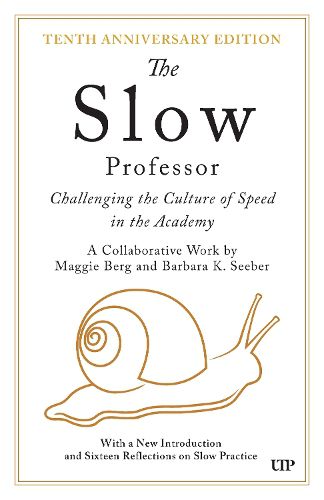Readings Newsletter
Become a Readings Member to make your shopping experience even easier.
Sign in or sign up for free!
You’re not far away from qualifying for FREE standard shipping within Australia
You’ve qualified for FREE standard shipping within Australia
The cart is loading…






A decade after its initial release, The Slow Professor: Challenging the Culture of Speed in the Academy returns with an expanded anniversary edition that both reaffirms and reignites its call to resist the corporatization of academic life. In The Slow Professor, Maggie Berg and Barbara K. Seeber discuss how adopting the principles of the Slow movement in academic life can counter the erosion of humanistic education. Building on their original groundbreaking work, the authors offer fresh insights and reflections on the evolving landscape of higher education, while thoughtfully responding to critiques of Slow principles. has influenced their teaching, research, and practices over the past ten years, adding nuance, insight, and practical examples to the ongoing relevance of the Slow movement within academic life. is a must-read for new and returning readers in academia concerned about the frantic pace of contemporary university life.
$9.00 standard shipping within Australia
FREE standard shipping within Australia for orders over $100.00
Express & International shipping calculated at checkout
A decade after its initial release, The Slow Professor: Challenging the Culture of Speed in the Academy returns with an expanded anniversary edition that both reaffirms and reignites its call to resist the corporatization of academic life. In The Slow Professor, Maggie Berg and Barbara K. Seeber discuss how adopting the principles of the Slow movement in academic life can counter the erosion of humanistic education. Building on their original groundbreaking work, the authors offer fresh insights and reflections on the evolving landscape of higher education, while thoughtfully responding to critiques of Slow principles. has influenced their teaching, research, and practices over the past ten years, adding nuance, insight, and practical examples to the ongoing relevance of the Slow movement within academic life. is a must-read for new and returning readers in academia concerned about the frantic pace of contemporary university life.